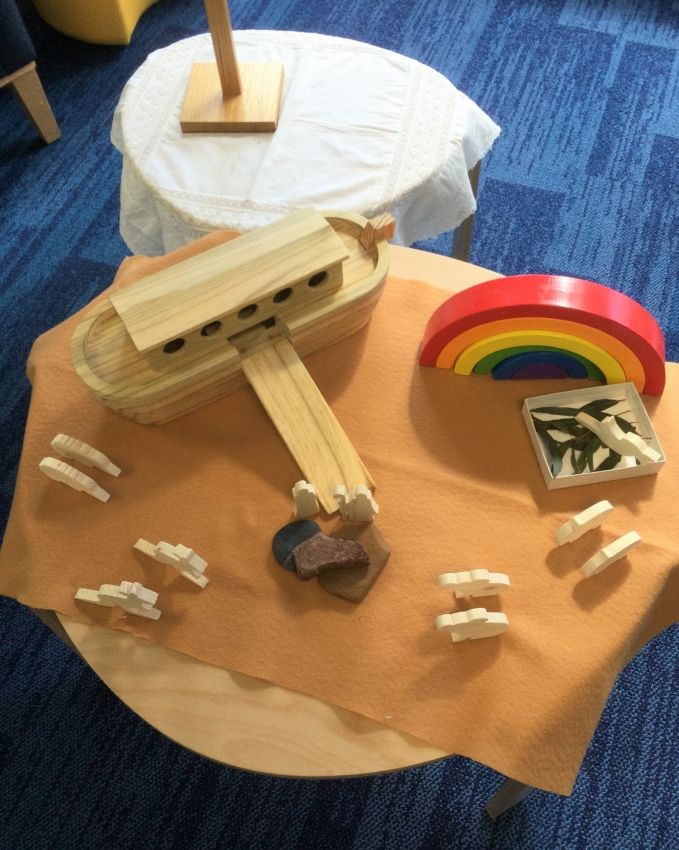Godly Play in Aged Care
.jpg)
At Burrangiri Aged Care Respite Centre, Chaplain Major Leanne Lock has incorporated Godly Play into the chapel services and activities at the Centre.
“Our clients are given the opportunity to explore their faith in a safe environment,” says Major Leanne. “There is an emphasis on wondering and conversation, and there is no right or wrong answer.”
Godly Play is a Montessori method of telling Bible stories, developed by Jerome Berryman, using parables, sacred stories and liturgical lessons about religious traditions and utilising tactile natural materials. It invites the listener to connect faith stories with personal experience through wondering questions and open-ended response (Source: Godly Play Australia).
Through the utilisation of props and figurines, people can see the story unfold before their very eyes and are invited to enter the story. In an aged care context, this can be beneficial for individuals with dementia and hearing impairments.
“Godly Play can provide a better idea of the story with the separate pieces coming together,” explains Major Leanne. “It provides a way to spiritually care for those with dementia. Sometimes seeing the visual can unlock a memory, tapping into their earlier memories. You can hand them the figures and it’s tactile, and they can put them in the story.”
Major Leanne sometimes incorporates interactivity when telling stories with Godly Play. When telling the story of Palm Sunday at Easter, she provided cut outs of green felt palms that clients could place onto the felt cloth road if they wished, similarly to what occurs in the story. “The interactive element makes spirituality much more accessible and draws people in,” says Major Leanne.
_smaller.jpg&width=684&height=795)
A less structured approach to faith, Godly Play storytelling provides the opportunity for individuals to immerse themselves in the story and envision themselves as one of the characters that they may relate to. The props allow for some creativity and fun, and flexibility for making the story more relevant to those watching. Major Leanne once told the story of Noah’s Ark in an Australian setting with Australian native animals and a gum leaf.
Wondering questions are posed after the storytelling is over where individuals are welcome to share their personal responses, which do not have to be religious or spiritual. These discussions can provide a foundation for meaningful conversations. Major Leanne recalls, “The Good Shepherd triggered a memory for a female client about her life growing up on a farm. It was something she’d never mentioned before, and we talked about it for hours.”

Godly Play has also proven to be an effective communication tool in the everyday, helping to stimulate one-on-one conversations with clients who may not be settling into centre life or are having a hard time, as well as connecting with more reserved clients. Major Leanne has written her own Remembrance Day script using Godly Play, which has helped in talking about this sadder occasion with clients and what it means to them.
With the aid of visuals and tactile objects, classic stories become reimagined, bringing out new perspectives from those listening and watching. “One gentleman said he felt like he had been taken to Jerusalem after taking part in the Palm Sunday story,” says Major Leanne. “Clients enjoy this new way of hearing the story and have said that different aspects of the story are revealed through this way of storytelling. I sometimes notice the wiping of a tear from a cheek or a quiver in a voice. People are wondering, being challenged, responding.”
To find out more about Godly Play, visit http://godlyplay.com.au/.


